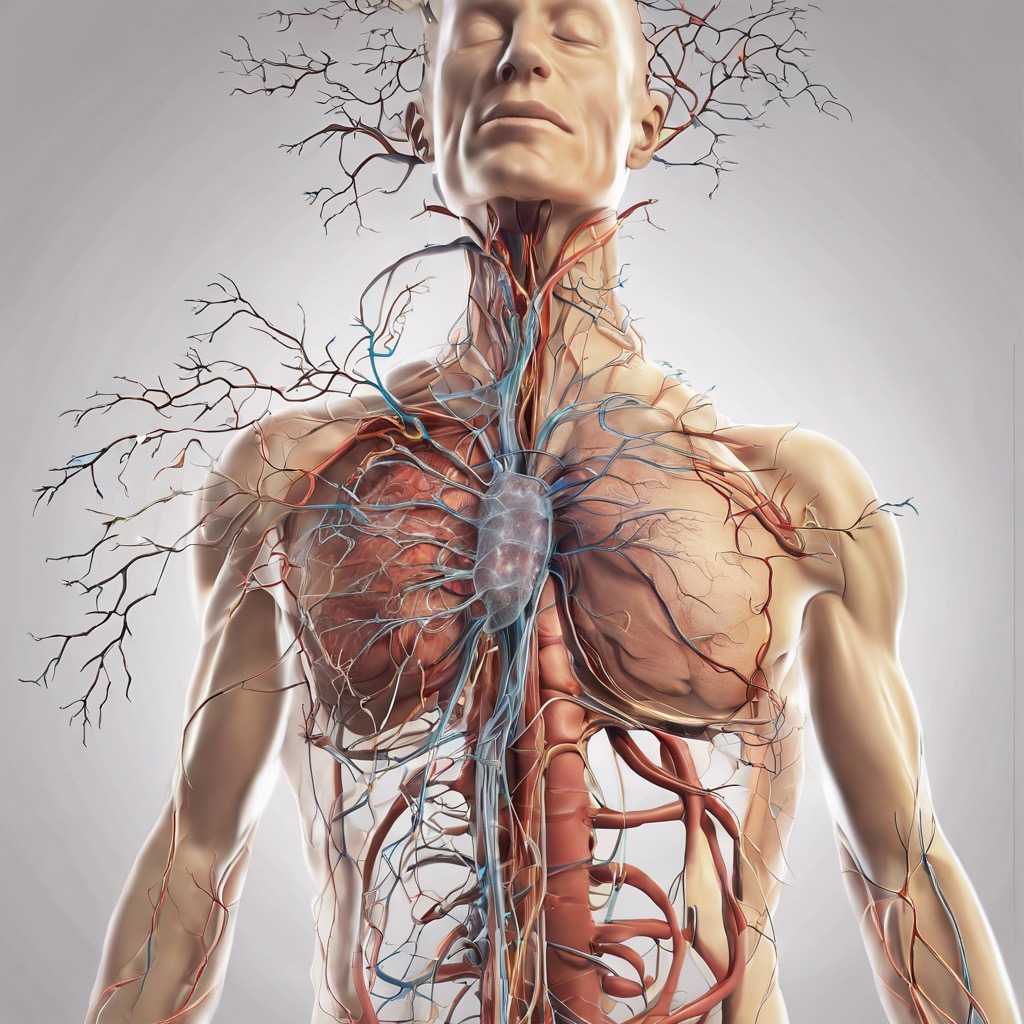Introduction:
The human body is a magnificent creation, with numerous intricate systems working in harmony to ensure optimal health and functioning. Among these systems, the vagus nerve holds a special place. Often referred to as the “wandering nerve,” the vagus nerve plays a crucial role in maintaining balance and communication between the brain and various organs throughout the body. In this blog post, we will delve into the astonishing capabilities of the vagus nerve and explore how it impacts our overall well-being.
What is the Vagus Nerve?
The vagus nerve, scientifically known as the cranial nerve X, is the longest and most complex of the cranial nerves. It originates in the brainstem and extends down through the neck, chest, and abdomen, connecting the brain to major organs including the heart, lungs, stomach, and intestines. This extensive network enables the vagus nerve to regulate a wide range of bodily functions, both consciously and unconsciously.
Functions and Regulation:
The vagus nerve is responsible for a multitude of vital functions, including:
1. Parasympathetic Nervous System Activation:
The vagus nerve serves as the main component of the parasympathetic nervous system, which is responsible for the “rest and digest” response. When activated, it promotes a state of relaxation, lowers heart rate, and enhances digestion and nutrient absorption.
2. Heart Rate Regulation:
The vagus nerve plays a key role in controlling heart rate variability, ensuring that the heart beats at a healthy rhythm. It helps maintain a delicate balance between sympathetic and parasympathetic stimulation to keep the heart functioning optimally.
3. Respiratory Function:
By controlling the muscles involved in breathing, the vagus nerve regulates respiratory rate, depth, and rhythm. It helps ensure that oxygen is efficiently transported to the body’s cells and carbon dioxide is adequately eliminated.
4. Digestive System Regulation:
The vagus nerve influences the movement of food through the digestive tract and controls the production of digestive enzymes and stomach acid. It also communicates hunger and fullness signals to the brain, helping to regulate appetite.
5. Inflammation and Immune Response:
Research suggests that the vagus nerve can modulate inflammation and the immune response. Stimulation of the vagus nerve has been shown to reduce inflammation in conditions like rheumatoid arthritis, Crohn’s disease, and sepsis.
Ways to Stimulate the Vagus Nerve:
The vagus nerve’s impact on overall well-being has led to an increasing interest in techniques to stimulate its activity. Here are some methods that may help:
1. Deep Breathing Exercises:
Engaging in slow, deep breaths can activate the vagus nerve and stimulate the parasympathetic response. Aim for long exhales, as this signals relaxation to the body.
2. Meditation and Mindfulness:
Practicing meditation and mindfulness techniques can help reduce stress and enhance vagal tone. Focusing on the present moment and cultivating a sense of calm can positively influence the vagus nerve’s activity.
3. Cold Exposure:
Exposing the body to cold temperatures, such as taking cold showers or immersing in cold water, can activate the vagus nerve and promote its function. Start with short exposures and gradually increase the duration over time.
4. Singing, Chanting, and Humming:
Engaging in activities that involve vocalization, like singing, chanting, or humming, can stimulate the vagus nerve. These practices promote deep diaphragmatic breathing, which activates the nerve’s calming effects.
5. Regular Exercise:
Engaging in regular physical activity has been shown to enhance vagal tone. Aim for a combination of cardiovascular exercise, strength training, and activities that promote flexibility and balance.
Conclusion:
The vagus nerve, with its vast reach and influence, acts as a vital link between the brain and the body’s organs. Its ability to regulate various bodily functions, modulate inflammation, and promote relaxation highlights its significance in maintaining overall health and well-being. By incorporating techniques to stimulate the vagus nerve, such as deep breathing exercises, meditation, and cold exposure, we can harness its power to enhance our physical and mental health. Understanding and nurturing this remarkable nerve can lead to a greater sense of balance and harmony within our bodies.


